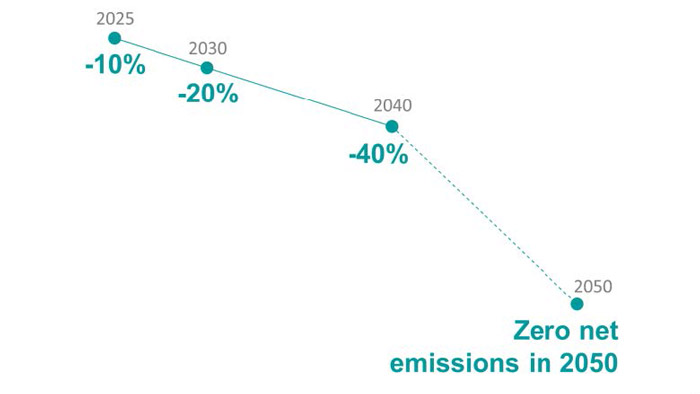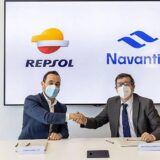
Repsol announces plan to be a net zero emissions company by 2050
In line with its commitment to sustainability, Repsol aims to achieve net zero emissions by 2050, making it the first oil and gas company in the world to assume this ambitious goal. At the same time, it is setting a decarbonization path with intermediate targets for 2020 to 2040.
This ambition entails directing all of its activities and investments to meeting new and more stringent plans all in alignment with the energy transition and the effort to limit the planet’s temperature rise to well below 2 degrees Celsius according to the Paris Agreement’s climate goals.
In this context, the company assumes a new oil and gas price scenario consistent with the Paris Agreement’s climate goals. This adjustment to the value of some assets implies a post-tax impairment charge of EUR4.8 billion (USD5.3 billion), which will be reflected in specific results for 2019. Repsol says this will neither affect cash flow nor shareholder remuneration, which is among the most attractive in the Spanish stock market and in the sector worldwide.
The upstream unit will prioritize the generation of value and cash over volume. The industrial businesses will maintain its current leading profitability and add more stringent decarbonization goals as well as an increase in the production of biofuels and chemical products with a low carbon footprint. The new businesses will expand their low-carbon electricity generation targets through 2025.
The company’s 2021-2025 Strategic Plan, which will be presented to the market and investors in the first half of 2020, will be based on this new, and more demanding scenario.
To achieve this objective, Repsol is setting new goals for the reduction of its carbon intensity indicator from a 2016 baseline: 10% by 2025, 20% by 2030, 40% by 2040, and net zero CO2 emissions by 2050.
.jpg)











